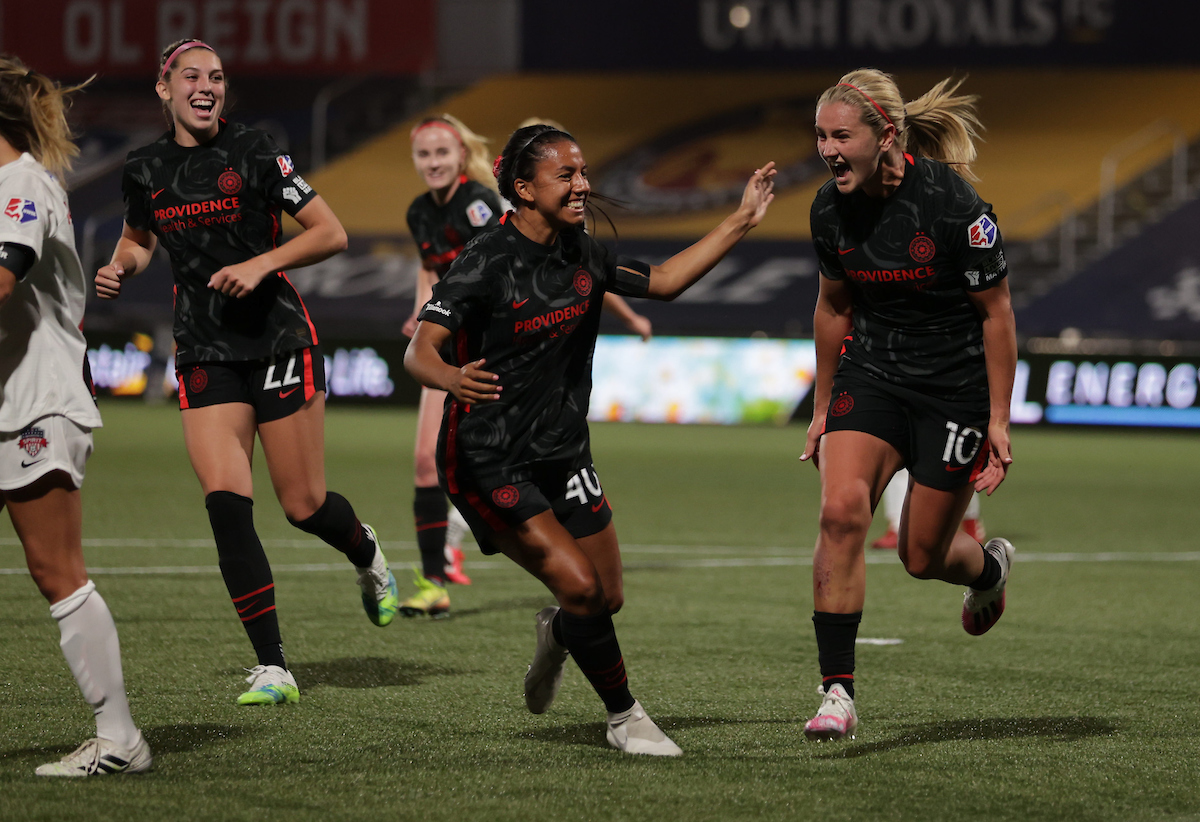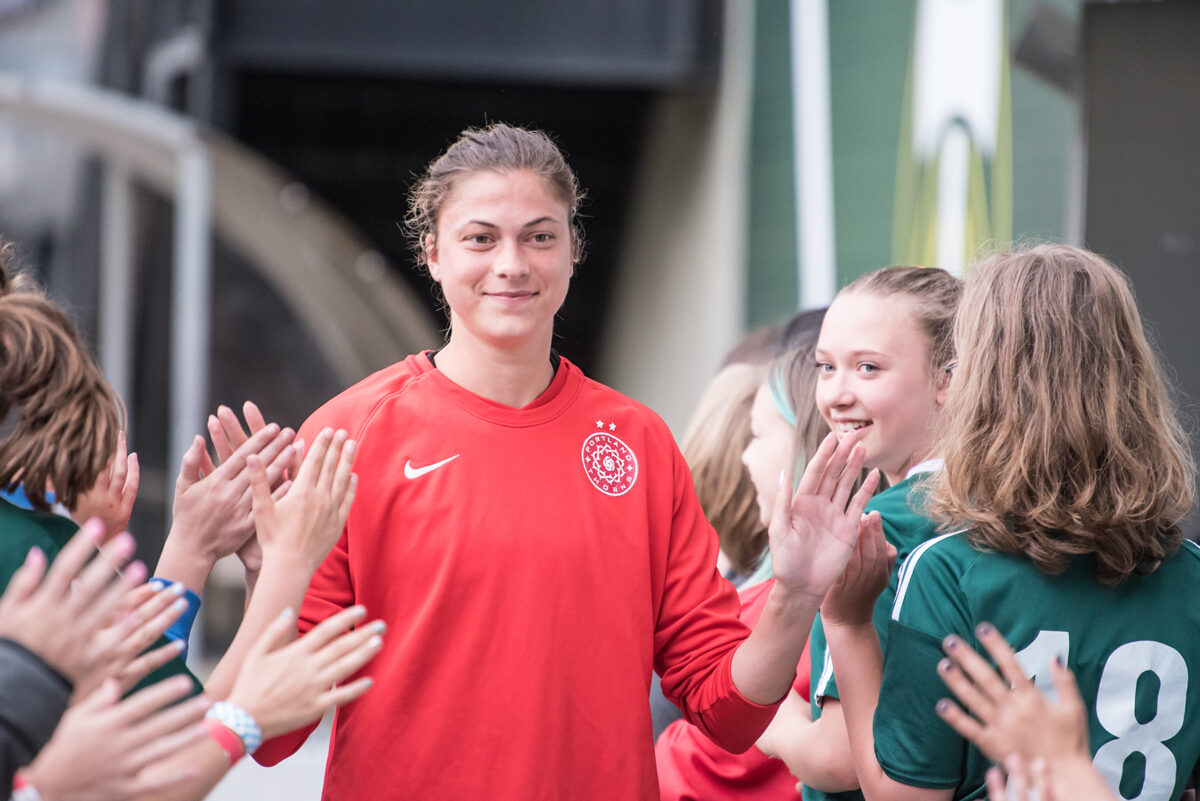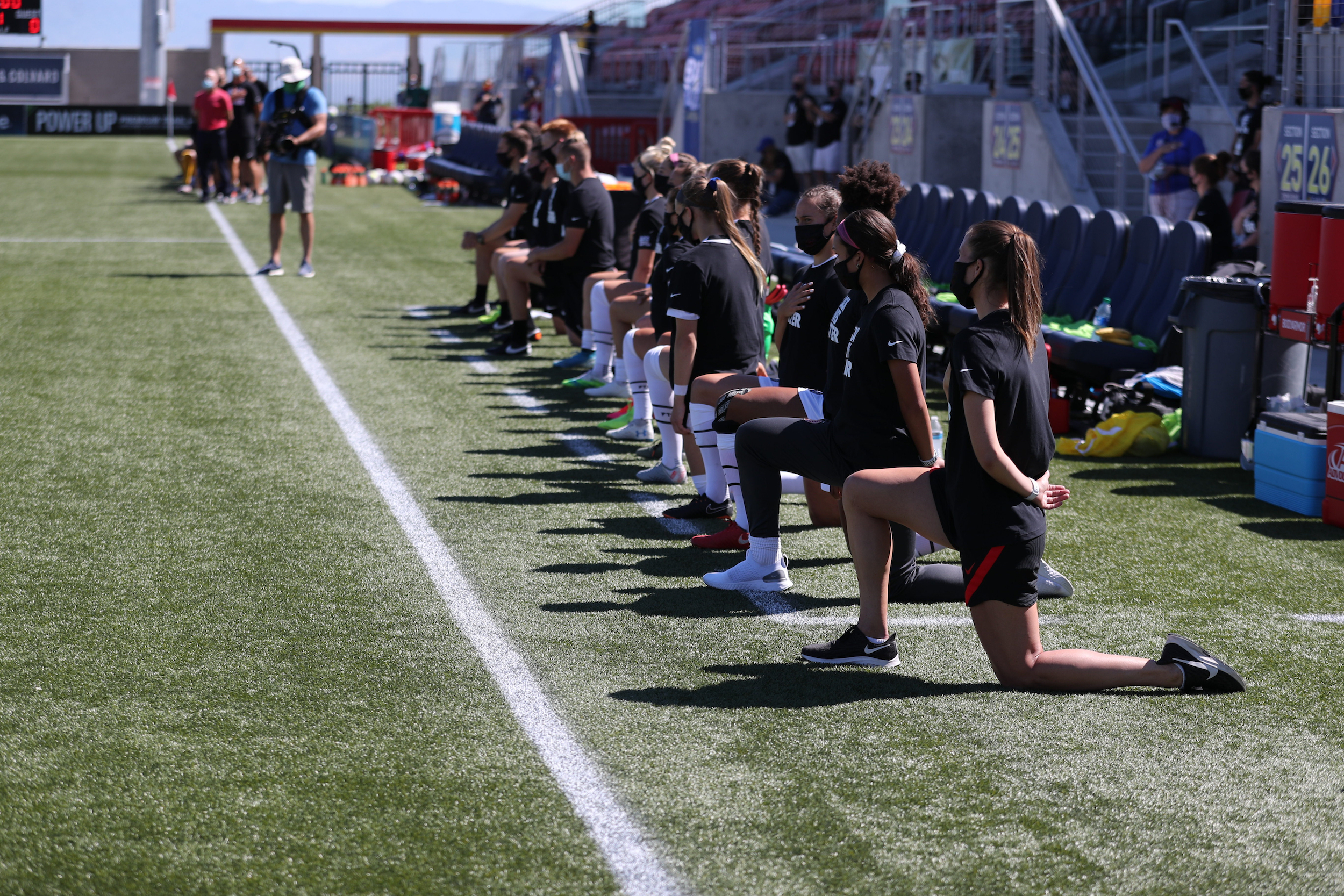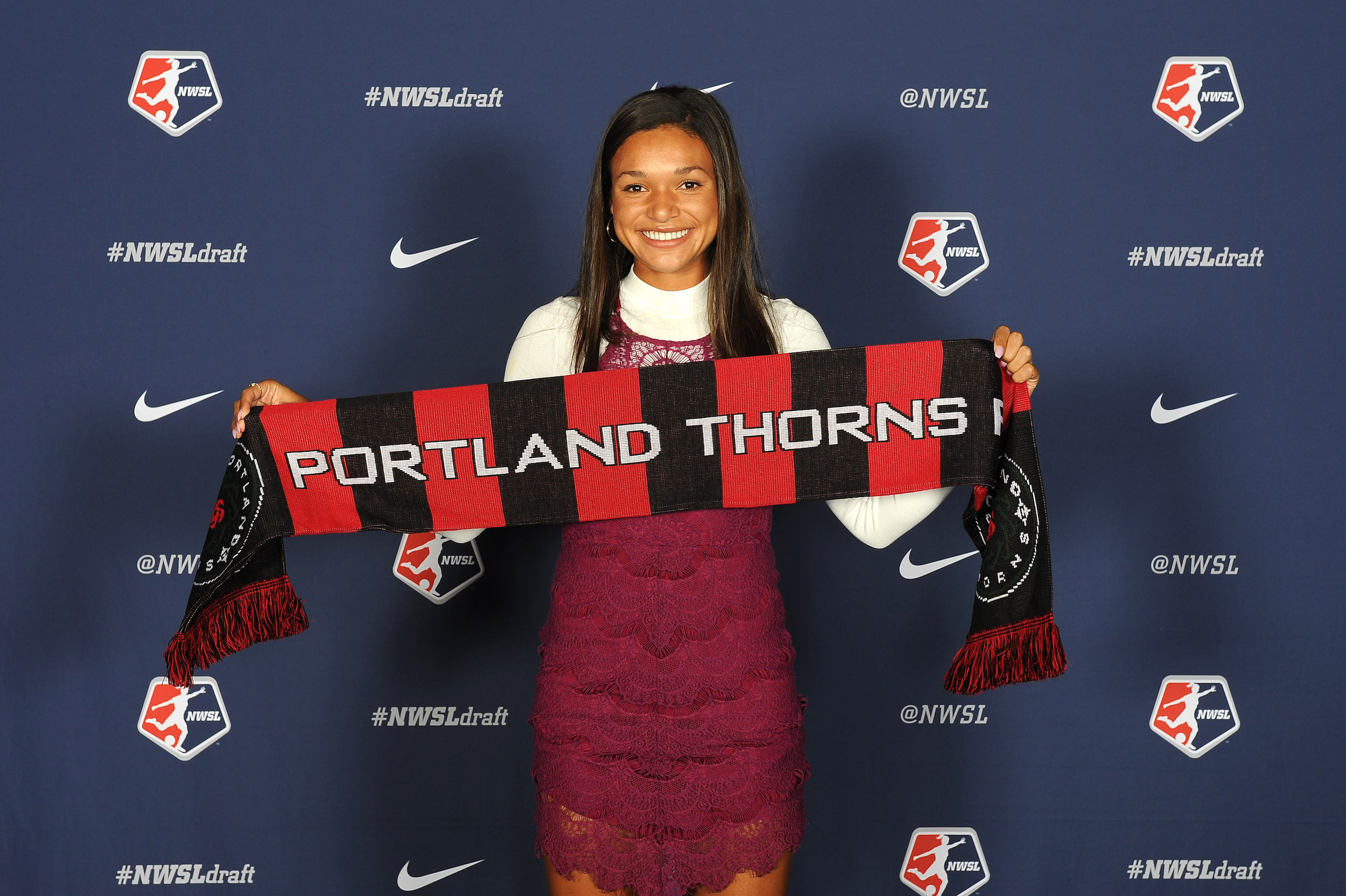Last Monday morning, it was summer, and then in the space of 20 minutes, it became not-summer. The blue sky was gone, and suddenly it was windy and there was a sickly yellowish pall over everything. The evacuation notices started coming in a few hours later. I know three families who have had to flee their homes.
This isn’t the first time we’ve had smoke like this. In the summer of 2017, I lived on the poorly insulated third floor of a hundred-year old house. There was always a week or two in the summer when the temperature would get to 90 or 100° and the apartment became almost uninhabitable, and in a vain attempt to keep the temperature down, we’d leave the windows open and the curtains closed all the time. One morning I woke up to a fine layer of ash filtering in onto all the windowsills, and we simply had to shut the windows and leave. I slept in a friend’s basement.
Maybe this is the worst it’s ever been. I’m not sure. In some ways, it’s an improvement over that summer in 2017, in that the smoke is keeping the temperature down. The ash was thicker that year, too. You couldn’t go outside without it getting in your eyes, which stings like crazy.
And now: a soccer game
Supposedly, a Thorns game is happening on Tuesday. It was supposed to happen on Saturday, but when you can’t see across the Willamette and the sun looks like a perfect orange disc, I hear that’s a bad time to run around outside for 90 minutes. The Thorns didn’t train outside last Thursday, when they held their press conference, and I’d be surprised if they’d done so since. An NWSL spokesperson tells me that if the AQI is above 200, games are cancelled automatically, but an on-the-ground decision can be made below that level. I have not asked anyone, but I don’t think the league has an automatic cutoff for collective existential dread.
One of my dad’s friends lives out near Marcola, east of Springfield, and had to evacuate. He used to throw a big party every summer, which I didn’t like very much because everyone there was an adult and most were adults I didn’t know. My brother and I would wade in the creek and look for crawdads. The sun landed on the forest floor in a patchwork that shifted with the breeze.
The thing I’m not sure people outside of Oregon understand, hearing every summer about wildfires in the west, is that this corner of the state isn’t supposed to burn—not like this, anyway. I’ve lived on this side of the Cascades my whole life and I can’t remember a single fire here, certainly not a bad one, until the one in the Gorge three years ago. We’re on the wet side of a rain shadow, the part where the clouds coming off the ocean wring themselves out.
The only time I ever caught a fish was up past the Leaburg Dam when I was maybe eight. The fog was as thick as the smoke is right now. The hills up there, rising out of the river and dense with trees, look black, but if you walk into the forest it’s bright green and spacious. My dad and I ate lunch at Ike’s Pizza, which may or may not have burned to the ground this week.
Here’s where the roster is at, according to Mark Parsons:
“First of all, Kath Reynolds, who was carrying a small injury, then came on and took another injury… Kath Reynolds will not be available in the Fall Series, she’s opted out—carrying an injury into the Challenge Cup, then got injured again once she got back. I think she just needs a little bit more time, she’s doing great. She needs a bit more time to think about what she’s going to do going forward. We have Celeste Boureille on loan in France. We’re going to announce Meaghan Nally going on loan to Germany. Tobin has made the commitment to sign in England until next year. Becky Sauerbrunn’s returning from injury. We think she’ll be available to get minutes in this first game. Sophie Smith’s returning from injury; we expect her to be available for some minutes this weekend. AD and Bella both have medium- to long-term injuries; they will not be available for the Fall Series.”
I remember when I was 11 or 12, we had a few days of smoke, and it was such a novelty that on the first day, my friend’s mom said that upon waking up and smelling it she went around and checked every room to make sure the house wasn’t on fire.
I remember riding an Amtrak train out of Portland one year recently—can’t remember which—and seeing this crazy sunset where the clouds were layered behind the smoke in translucent layers like different-colored lighting gels, all orange and pink and purple. I was disturbed by how beautiful it was.
Something I am ashamed of is that when things aren’t so bad where I am—when we have a summer where the smoke never really reaches Portland, or the temperature never really spikes—I let myself believe in that moment that things aren’t so bad, generally speaking. I know this to be untrue, but at the same time as I know that, I let myself feel unworried. It’s a basic flaw in the human brain when it comes to functioning as part of a society; we simply don’t have the energy to experience problems as realistically dire unless they’re literally surrounding us, filling the air, blotting out the sun, chasing us out of our homes. Even then, once they go away, we relax. We have to do this. We don’t have the energy not to.
Here’s Emily Menges on how the Thorns are approaching the Fall Series, a set of games with no trophy:
“So we’ve had to talk about this a lot as a team, and everyone’s in all different places. So you have the players who are back from injury who are just raring to go and want to get back out there, get games in. You have some players who might need a little bit of a mental break and that kind of thing. But I think we’ve kind of understood as a team that we’re in such a unique situation, because we’re one of the only teams that has basically our entire team here… You rarely have the opportunity directly after a season to then reflect immediately, and kind of build off some of the things you wish were better during that season. You usually have a five-month offseason… We’ve looked back at a couple games in Utah, against Houston, against Carolina, and just been able to pick out those key moments on what we can build on, what we need to do better if we’re going to win the championship next year… We’re not wasting this time.”
Every time a fire season happens, I think, I can handle this, I’m used to it now, and every time there’s some new detail that reassures me, no, you can’t, and yes, the world really is ending. This year, it was the very palpable feeling that I and everyone I know in this state might need to evacuate and literally have nowhere to go. Each of the three cities in the Willamette Valley has its own personal fire, each of which was, until a couple days ago, barreling down the hills at us.
If you’re reading this right now from somewhere other than the west coast, I want to make sure you’re crystal clear about this: Portland, Salem, and Eugene, which have a combined population of about 3.5 million, all came within about thirty miles of getting engulfed in flames. The wind was so bad that firefighters weren’t even trying to contain the fires, just to move people out of harm’s way. Sooner or later, whether it’s here or in California or Washington, a fire is going to reach a major city, and many thousands of people will probably die.
Here’s Meghan Klingenberg on the smoke:
“Yeah, unfortunately that is kind of the state of the west coast right now in general, and it’s something that is really disappointing on a lot of levels, whether that’s a national level or a global level or a state level. Climate change is real, and we need to talk about it, and we need to make big strides in creating a world that we all want to live in, and a world that will continue to support life on this planet.”
This theoretical soccer game against OL Reign is at 7 p.m. on Tuesday. You can stream it on Twitch.
I’m still skeptical it’s happening, but even if it does, that won’t mean everything is fine. I can’t foresee a time when things will be fine. This is going to keep happening, and we’re going to keep putting up with it, because what else can we do? Next time, when the wind doesn’t shift at the last minute, where will we go?


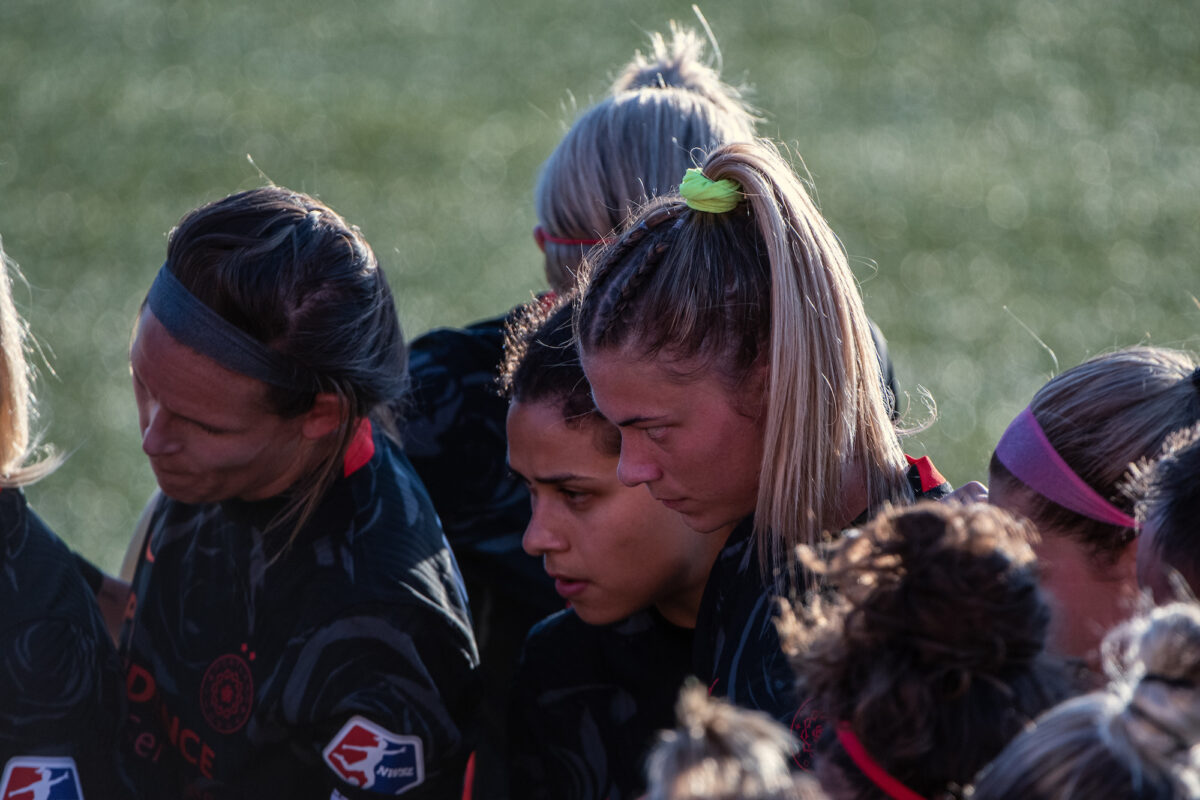

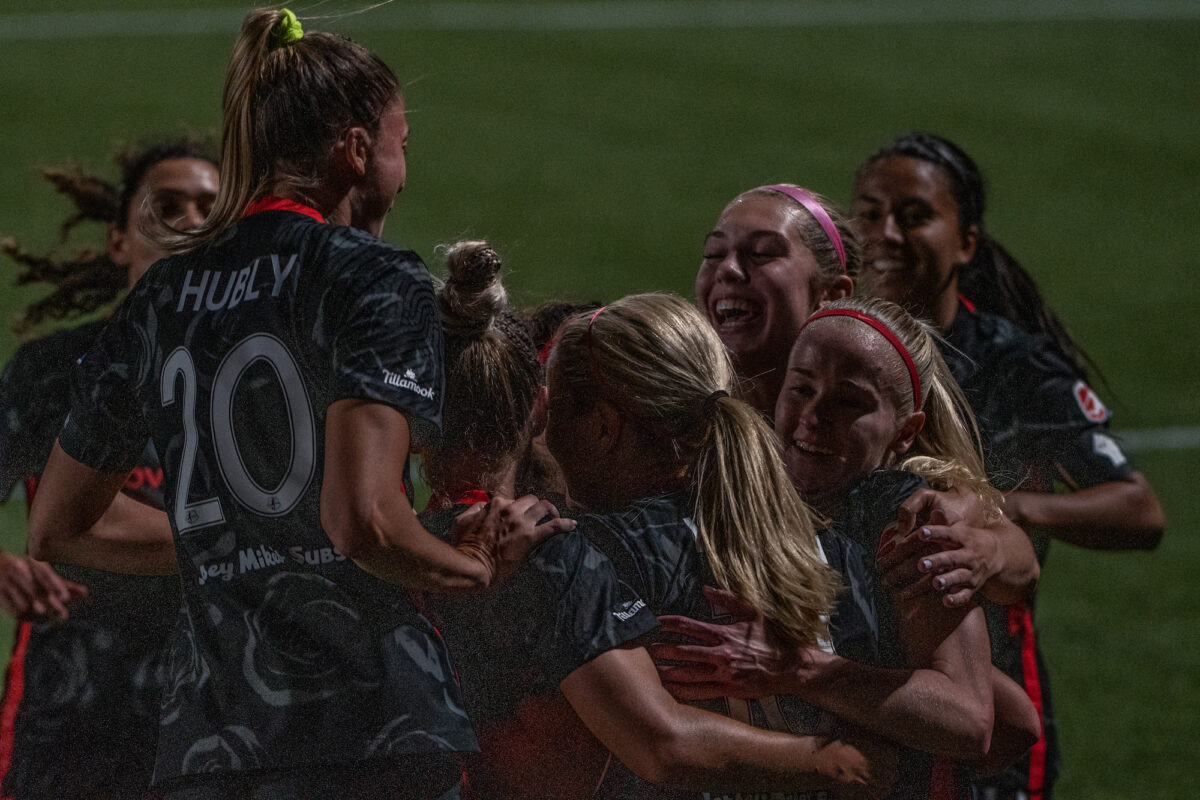
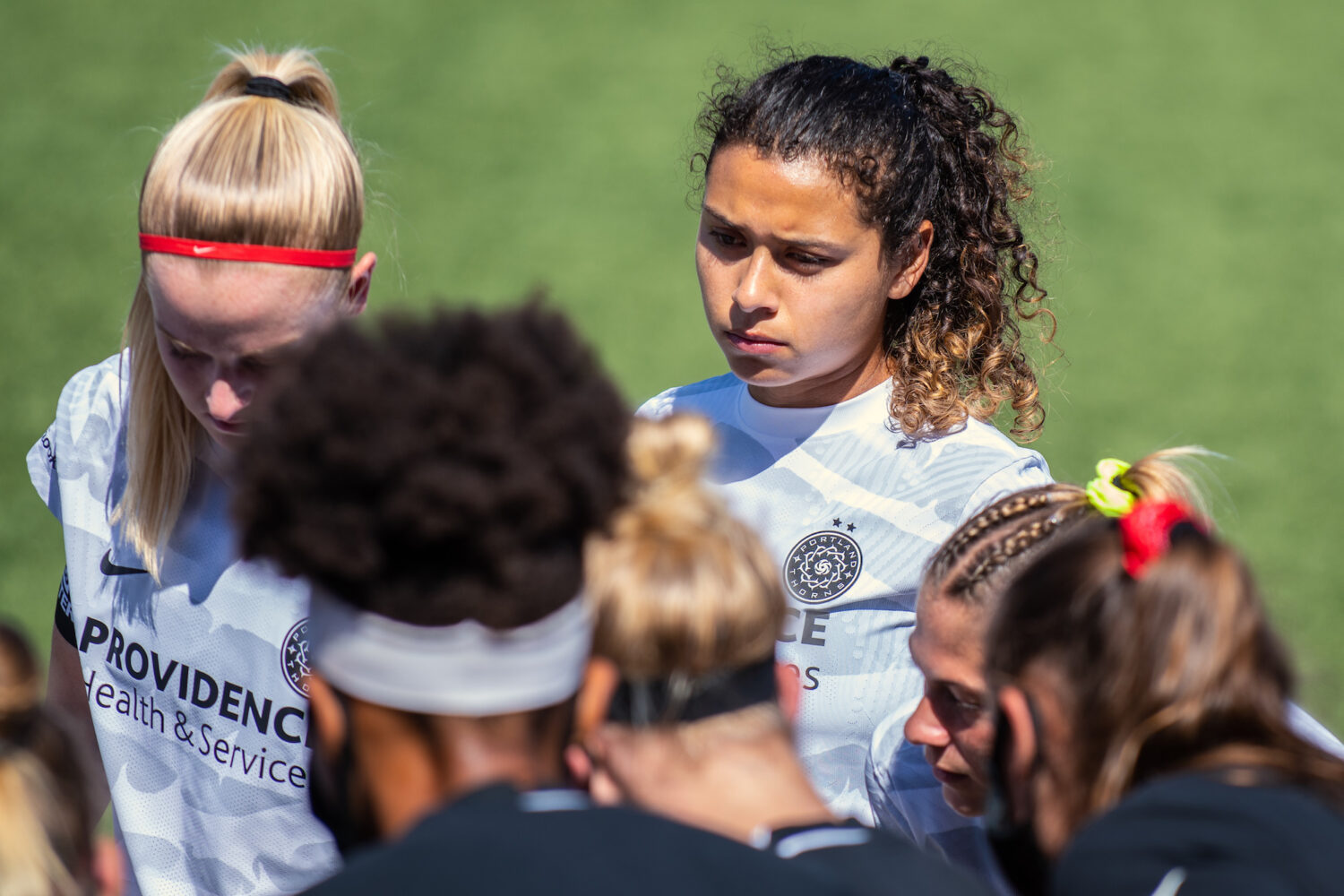
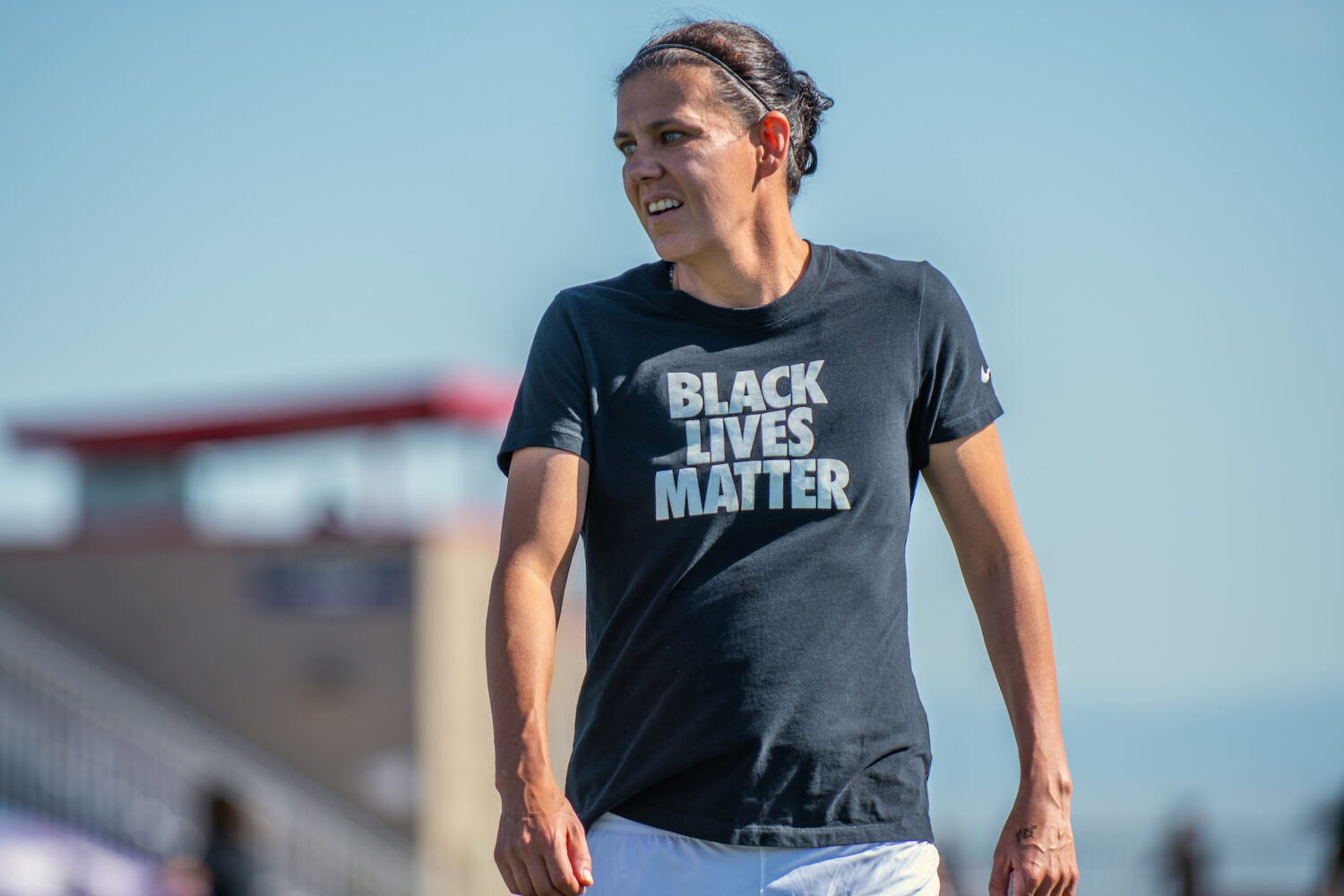
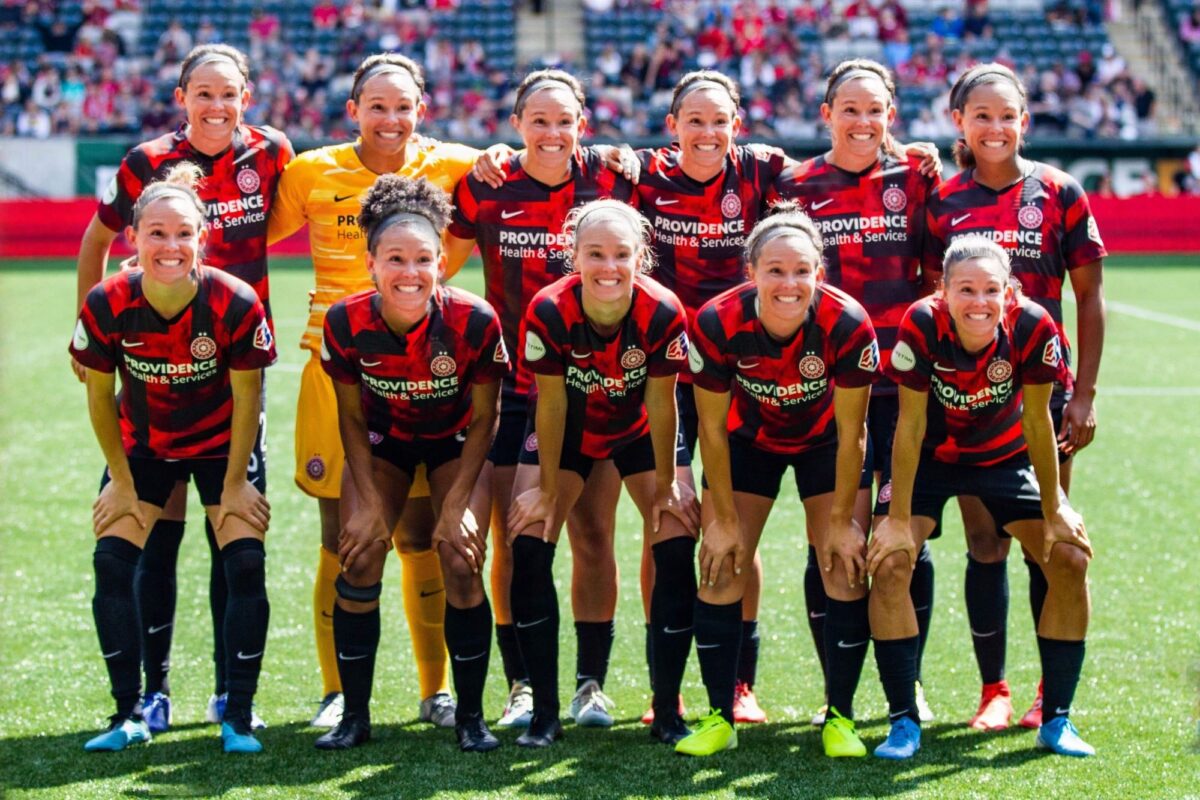
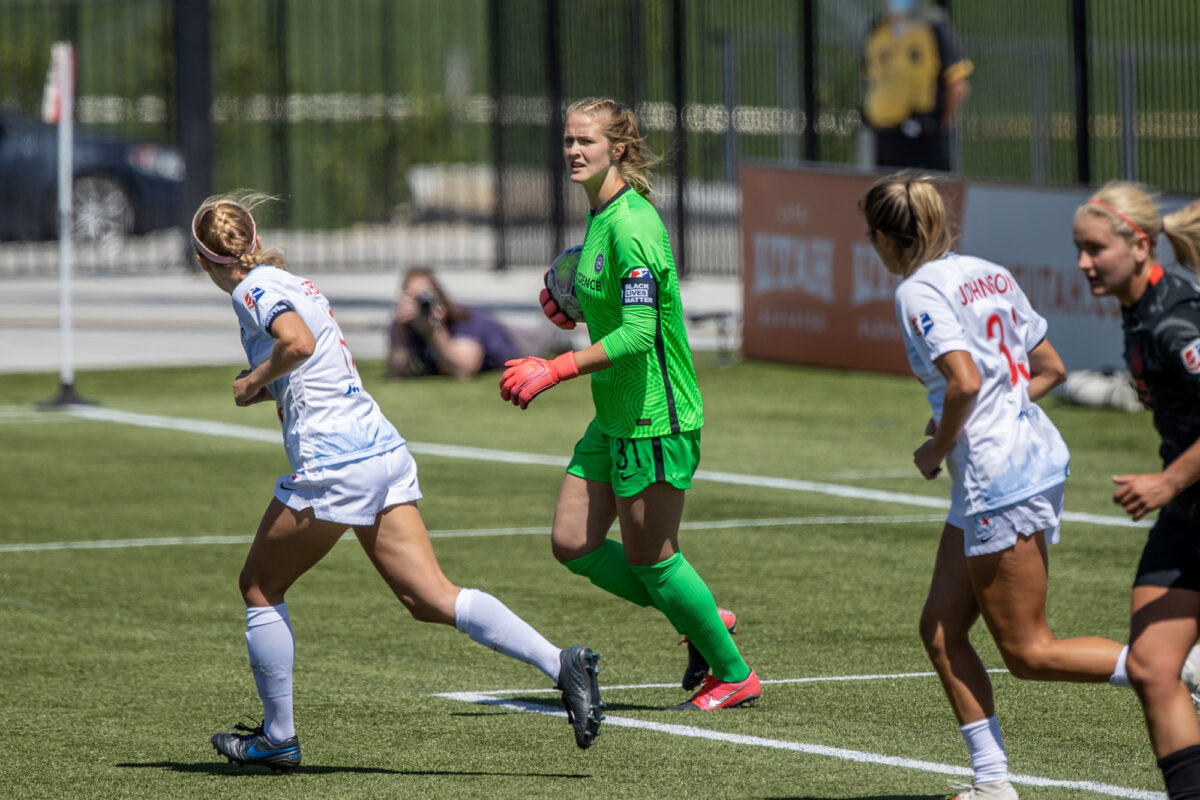
 Unlock with Patreon
Unlock with Patreon